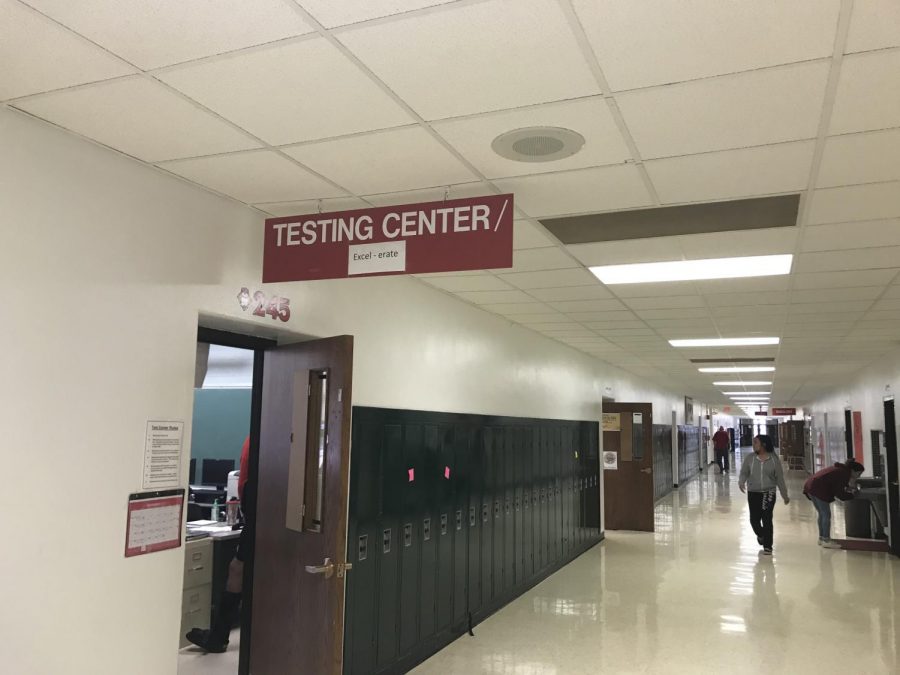Our attendance policy is a necessary evil
Students that miss a test due to an absence must make it up in the Testing Center. However, the room can fill up quickly.
One morning, I entered the Testing Center at 7 a.m., getting an early start to ensure I had enough time to make-up my test. Much to my surprise, the room was already close to packed. I just barely was able to snag the last seat. After I sat down, the rest of the students in line had to wait in the hall to complete their missed tests and quizzes.
Many students at our school who tend to be “sick” often have come face-to-face with our attendance policy. Our school says a student cannot miss more than 10 days of any class, even if they’re excused, unless the school gets a doctor’s note validating the student’s illness. Those that come close to passing that number will get sent a letter to their house notifying the family of their student’s absences.

The attendance policy, along with all other policies, is outlined in our student handbooks. However, students seldom read it.
“[The excessive absence policy] has been in place since the 2006-2007 school year,” said Ms. Kimm Dever, director of deans.
While the policy is not something that makes any student happy, it is a necessary evil that any school would need. Without it, there would be those students that would be “sick” every day. Some could say, “ We don’t need it. No parent would let their child stay home too much. The school doesn’t need to get involved.” The issue is that not all parents discipline their children or behave in the same way.
The school has the responsibility to ensure that its students participate satisfactorily in their education. While parents share the same job, there is no way to know that the parent does that job sufficiently. The attendance policy guarantees that every student goes to school a decent amount and doesn’t struggle in class due to absences.
These policies could be frightening to chronically late students, but they are in the clear. At our school, there is a distinct difference between being tardy and being absent. Being late is counted as tardy when the student arrives within 15 minutes of the beginning of first period. Thereafter, the student is marked absent in the classes they’ve missed.
Missing class is discouraged because it makes catching up in that class increasingly difficult. With each missed class, the student must somehow learn the lesson they missed, either by getting a shortened version from their teacher or trying to catch up on their own. Students that miss a test often have to make it up in the Testing Center.
“There are usually about 40-60 students [every day],” said Ms. Kim Estoque, one of the proctors of the Testing Center. “We are most busy at the end of the quarter and after ‘senior ditch days.’”
While the excessive absence policy is an annoyance to some students, our school would struggle without it. Sadly, lazy students must suck it up and get to school unless they have an extenuating circumstance.

Lauren Wols is a junior who probably has a friend crush on you. If she’s not writing for Devils’ Advocate, she may be choreographing or doing other...













